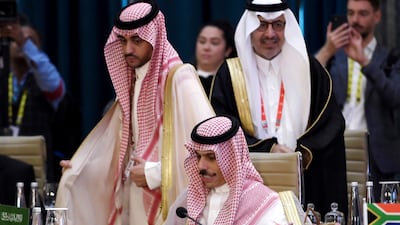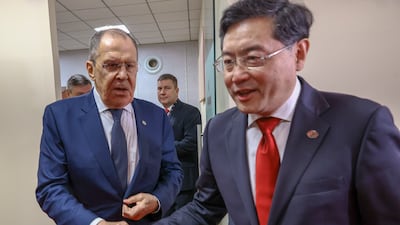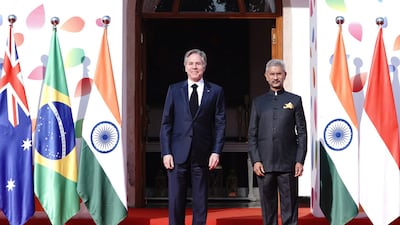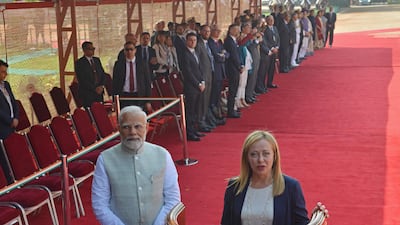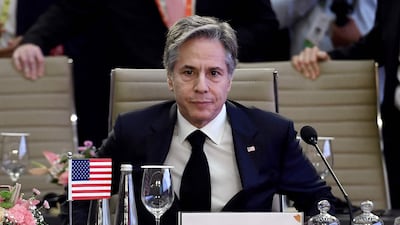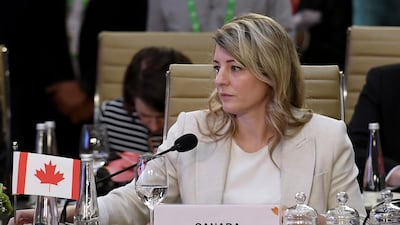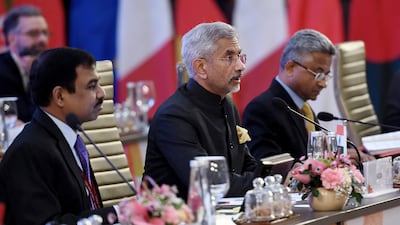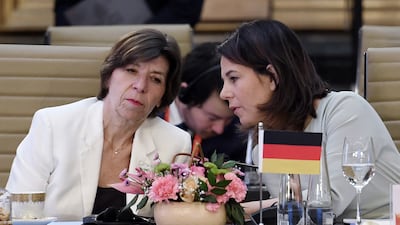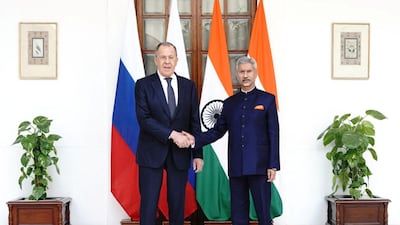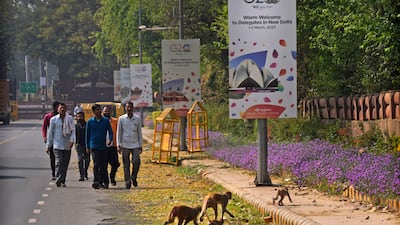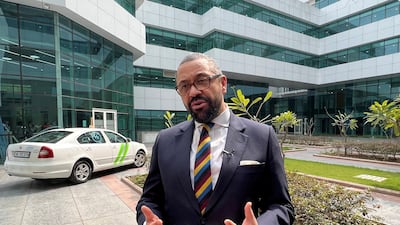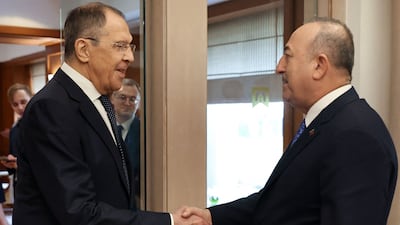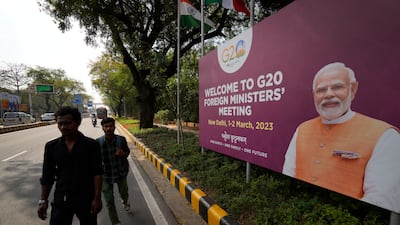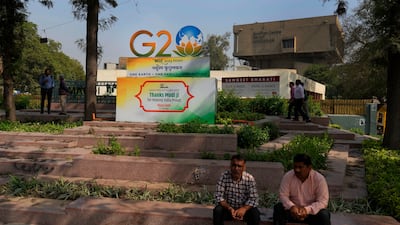The US and its European allies on Thursday urged G20 nations to keep up the pressure on Russia to end a conflict they said has destabilised the world.
Russia hit back, accusing the West of turning work on the G20 agenda into a “farce” and said western delegations wanted to shift responsibility for their economic failures on to Moscow.
“We must continue to call on Russia to end its war of aggression and withdraw from Ukraine for the sake of international peace and economic stability,” US Secretary of State Antony Blinken said, according to prepared remarks shared with reporters after his address at the closed-door meeting of G20 foreign ministers in the Indian capital, New Delhi.
He was backed by his counterparts from Germany, France and the Netherlands.
“Unfortunately, this meeting has again been marred by Russia’s unprovoked and unjustified war against Ukraine,” Mr Blinken said, demanding that Moscow renew a deal to allow exports of Ukrainian grain.
“Russia has deliberately and systematically slowed its pace of inspections, creating a backlog of ships that could be delivering food to the world today.
“It is imperative the G20 speak up on behalf of extending and expanding the grain initiative to strengthen food security for the most vulnerable.”
Mr Blinken and Russia's Foreign Minister Sergey Lavrov chatted briefly at the meeting in their first talks in months amid soaring tension between the two countries.
German Foreign Minister Annalena Baerbock told the meeting that “unfortunately, one G20 member prevents all the other 19 from focusing all their efforts on these issues the G20 was created for”.
The remarks were aimed at Mr Lavrov, according to the German delegation.
The Black Sea Grain Initiative was brokered by the UN with Turkey last July and has helped to reduce spiralling food prices that have contributed to hunger in the developing world.
The deal is set to expire this month. Although it was renewed in November, UN humanitarian chief Martin Griffiths has warned of difficulties in securing another extension before it expires on March 18.
The agreement has allowed the export of about 20 million tonnes of grain.
Russia's invasion of Ukraine in February 2022 had held up ships from the major breadbasket, with Moscow voicing concern over Ukrainian naval action.
Under last year's deal, Russia in turn was promised the right to export fertiliser free of western sanctions.
Moscow insists that part of the agreement is not being respected.
Russian exports 'exceed pre-invasion levels'
The US said fertilisers or other agricultural products were not the target of its sweeping sanctions on Russia.
Russia's “own food and grain exports exceed pre-invasion levels and its fertiliser exports are back to where they were last February”, Mr Blinken said.
However, Mr Lavrov sought to blame the West for the global political and economic crises.
“A number of western delegations turned the work on the G20 agenda into a farce, wanting to shift the responsibility for their failures in the economy to the Russian Federation,” Mr Lavrov said.
“The West creates obstacles for the export of agricultural products of the Russian Federation, no matter how the representatives of the EU convince the contrary,” he said.
Mr Blinken has said he believes Moscow is not serious about diplomacy to end the war.
“Unfortunately, this meeting has again been marred by Russia's unprovoked and unjustified war against Ukraine, deliberate campaign of destruction against civilian targets and its attack on the core principles of the UN Charter,” Mr Blinken told G20 delegates.

